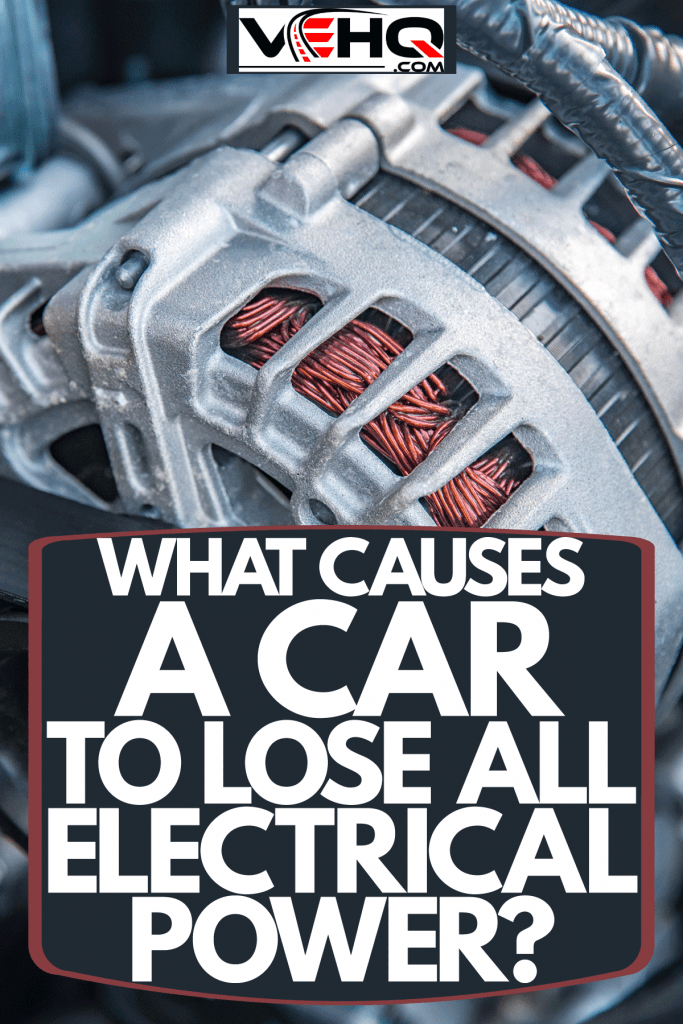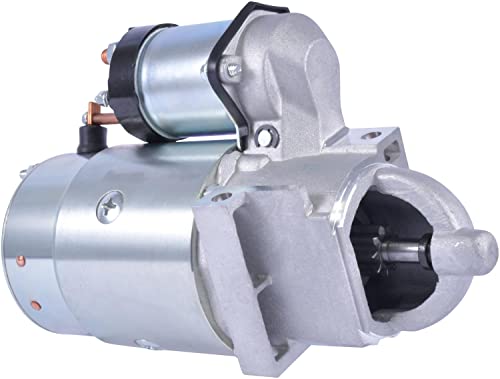There are many reasons why a car may stall, gradually losing acceleration on the side of the road. It only takes a faulty fuel injector, dirty air filter, or broken sensor. However, if the vehicle still has electrical power, some of these can be ruled out. We have researched what it takes to lose all electrical power in a vehicle to shorten your list.
Losing all electrical power within a vehicle is most often caused by any of five main things. This usually comes from:
- Old battery
- Bad alternator
- Problems with the starter
- Cables that have broken down over time
- Problem in the connection somewhere between the battery and the starter
Need to know more about these typical problems any vehicle can encounter? Keep reading to help differentiate the maintenance your vehicle may be looking at.

How do you know if your car has an electrical problem?
Unlike a simple loss of acceleration caused by a million different problems, it is easier to tell if the problem you experience with your vehicle is electrical. The most telltale sign is when the battery does not turn over and the car will not start. It could be as simple as lights dimming to a lower degree than normal, or problems with the engine since the engine does need electricity to put everything into motion.
5 Main Causes
A few key ingredients within a vehicle make electricity run smooth from the battery, through the connections and cables, working in conjunction with the alternator, which re-charges the battery. There are many places within this contained system that one or more break downs can occur. It's important to keep in mind that when one thing breaks, usually it has the power to affect some of the other parts.
Battery
As the battery gets older, especially as it gets towards 4 or 5 years old, there is a greater chance that one day soon you will go to turn the vehicle on and it will just sit. Once that happens, without battery chargers, you go nowhere fast.
In order to prevent the sinking feeling that comes from last minute adjustments, keep the battery fresh, keep battery chargers with the car at all times, and know how to test for problems with the battery.
Click here to see this jump starter kit on Amazon.
If the vehicle simply will not start, try charging the battery. And if it will charge up for the moment, but once turned off it will not start again, the battery needs to be replaced. If there is a whining cacophony of sound when the car is turned on, be on alert, the battery may be dying. For more information on how to check car battery life, click here.
Alternator
The alternator keeps the battery going and keeps the supply of energy running steady within the vehicle. The battery may be the source of energy, but without the alternator, it will be a short trip.
What are the signs of a bad alternator?
Alternators and batteries have an intricate relationship within a vehicle. A dead battery can be a sign of a bad alternator. If the battery is still at half life or better, yet it is dead, there is a good chance the alternator has not done its job of recharging the battery as the vehicle runs.
While the batteries whine, alternators may make more of a grumbling noise as they get older. Hearing a noise resembling grumbling or noticing hot smells of rubber or wiring can be directly related to the alternator. This is a sign they're getting hotter than they should be as the vehicle works.
Another sign the alternator could be the culprit, might be variations of extra dim or bright voltage in the headlights.
Click here to see GM genuine parts alternator on Amazon.
What happens when an alternator goes out while driving?
If the alternator goes out while you are driving, the car will slow down to a halt. There will be no restart to help you pull off the side of the road. A tow truck will be required. However, it should not be abrupt because the car will use every scrap of energy it can get from the battery, killing the battery, before coming to a complete stop.
Starter
No grumbles or rumbles for this repair. Instead, there will be a clicking noise accompany a broken starter when you go to turn the vehicle on. The starter's job is to take the initial spark of electricity from the battery and engage the engine. If the starter doesn't work, the lights on the dash may light up, but the vehicle will not start, not even with a jumpstart.
Click here to see ACDelco gold starter on Amazon.
Cables
Corrosion may happen through oxidization of anything copper, or it can be from the acid within the battery. This break down of the cables creates problematic wiring that may show up as a powder, often white or green, on the points where the problem is.
Connections
Connections break down or become loose over the lifespan of a vehicle. Everything needs a tune-up and this is no exception. Loose connections are a simple fix, comparatively and run between the battery and the alternator.
How do you test an electrical short in a car?
Short circuits leave evidence. There may be burn marks, smells, or flickering lights. All of these may help find the place that needs some extra examination. Then a tool is needed that will monitor the voltage resistance or the electrical flow. This is called a multimeter.
With the multimeter, find the circuit that may need attention. The multimeter will show voltage and a light will glow. With this handy gadget, you are able to pinpoint the problem if it revolves around an electrical short.
Click here to see this digital multimeter on Amazon.
How much does it cost to fix an electrical problem in a car?
The cost of fixing an electrical problem will depend on what the actual problem is. A battery generally ranges between $50-$120, although specialties may range up to $200. Alternators are more expensive, and often require a new battery added to the final price tag.
However, to take a vehicle somewhere may range between $350-$400 for repair and installation. For more information on the cost of replacing an alternator, click here. To replace a starter, it may be around $500. About 1/5 of the total price is for the labor.
These are estimates and will vary by region and type of vehicle. These estimates also do not include any taxes or fees that may be reflected within the total.
Is it safe to drive a car with electrical problems?
A car with electrical problems literally runs on borrowed time. These types of problems can cause other issues within the vehicle. Belts may break if the alternator stops, batteries may need to be replaced on top of the price of alternator replacements. So many points of interconnectedness make electrical problems a high priority when it comes to scheduling maintenance and repairs.
Final Thoughts
Don't be caught on the road in need of a tow. Many of these situations have symptoms before stopping. It may be a whine or a grumble, but it is something to pay attention to and fix before the problem becomes larger.




